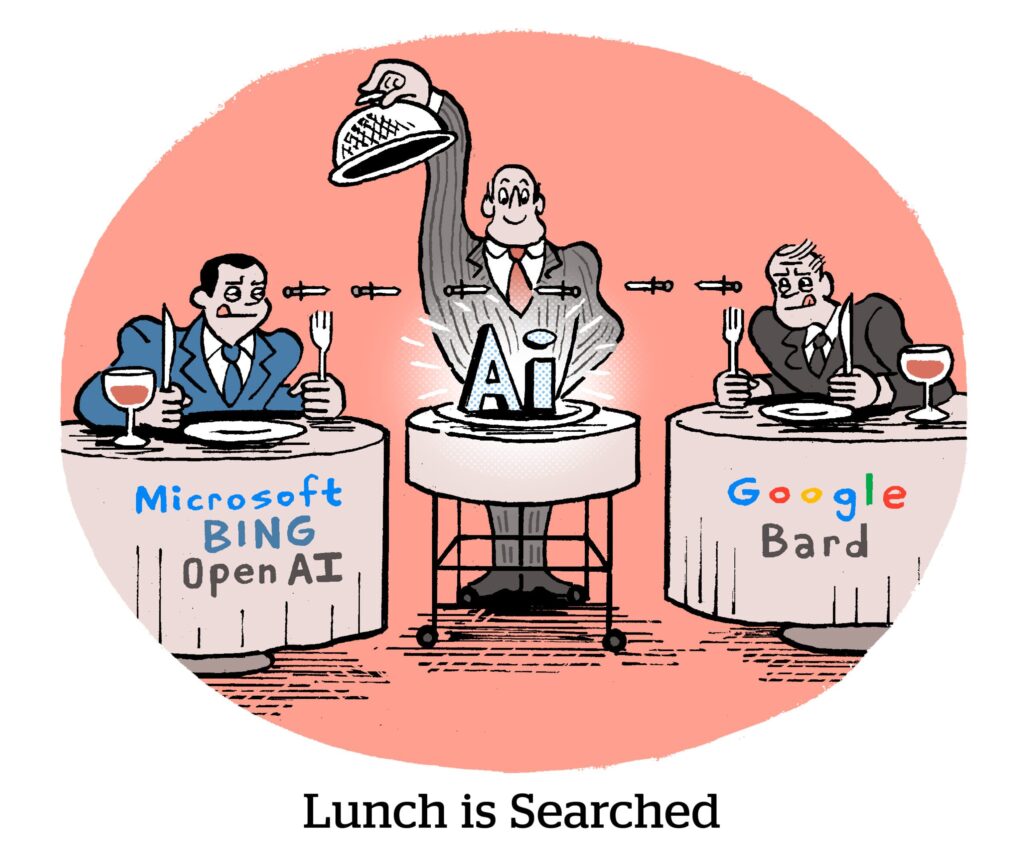Here’s today’s AdExchanger.com news round-up… Want it by email? Sign up here.
Artificial Ads
Advertisers can use AI to generate entire TV commercials.
Wait, what?
Spectrum Reach launched an AI tool on Wednesday that clients can use to input basic company information (name and location), select the desired tone for the commercial and choose one of 11 different AI voices.
The platform also appears to look at the advertiser’s online footprint, including online reviews and pictures of inventory, to customize the commercials, Ad Age reports.
And then, voila. Spectrum claims its tool can whip up a custom video in five minutes or less.
The tech may not have a human’s unique touch (auto-generated content struggles with humor, for instance). But TV commercials are expensive – especially addressable cable spots – and Spectrum hopes AI will help pull in more ad dollars from smaller businesses that otherwise couldn’t afford TV spots.
Large advertisers often have their own in-house creative team or can lean on agencies and so wouldn’t need to rely on AI to generate whole commercials. But they do use AI tools for other purposes.
Coca-Cola, for instance, inked a deal this week with OpenAI (parent company of ChatGPT), and P&G uses AI to test ad copy and placements.
It’s unclear how far agencies will go with AI, but the trend won’t be slowing down anytime soon.
The PMinimum They Can Do
Google has announced a raft of new Performance Max features. [AdExchanger readers got the news first with our sneak peek last week.]
Ginny Marvin, a Google ads products liaison, tweeted a useful summary.
One noteworthy addition is campaign-level exclusions for branded keywords. In plain English, advertisers will be able to block PMax from bidding on their own terms while still doing so within their own search campaigns. This prevents PMax from claiming credit for easy conversions coming from branded searches.
There are also new controls for budget pacing if, say, a brand wants to advertise in a particular daypart. Previously, there were no pacing controls or analytics.
And advertisers will be able to block Google from autogenerating text and image-based creative.
“We’ve heard your feedback that you want more ways to steer how Performance Max works on Search and Shopping inventory,” Tim Frank, Google Ads senior director of product management, writes in a blog post.
That’s a sugar-coated way to describe the intense frustration advertisers have had with PMax.
But recent updates and Google’s reception to critical feedback have flipped some very negative PMax buyers to merely reluctant. Some are even cautiously optimistic.
The News Goes Vroom
The New York Times introduced a (now-defunct) print automotive section decades ago, partly because readers were more interested in cars back then, but really due to overwhelming sponsor demand.
It’s a reminder that carving out a valuable beat even at a big-name publication can come at the behest of a handful of advertisers or even just one dedicated sponsor. Sometimes, new beats form around climate research, health and wellness or local political coverage. Mostly, though, it means coverage of cars and sporting events.
The Times has come full circle with the news this week that The Athletic, which it acquired last year, is launching a vertical to cover Formula One racing – sponsored by Michelob ULTRA.
“With support from Michelob ULTRA, The Athletic will now have dedicated staff and increased resources to grow and expand its F1 journalism,” according to the release.
Michelob ULTRA, by the way, announced two weeks ago that it will sponsor Williams Racing, one of the F1 teams, for the 2023 season.
“F1 is having a moment, from Drive to Survive to its three US races,” Seb Tomich, The Athletic’s chief commercial officer (and former head of global advertising for The New York Times), tells Adweek. “You bring that together, and marketers love when relevance meets scale.”
But Wait, There’s More!
PE firm Bridgepoint takes a majority stake in Equativ (formerly Smart Adserver) at a roughly $370 million valuation. [Insider]
Hot takes on Instagram Reels as the platform course corrects back to images. [Adweek]
Grocers, including H-E-B and Target, are eyeing college campuses in an attempt to win over students. [Modern Retail]
Toolkits: Publishers grapple with increasingly complex subscription renewal laws. [blog]
You’re Hired!
Cameo names Matty de Castro as its new head of enterprise sales. [The Wrap]
Conversational data collection platform Typeform appoints Oji Udezue as chief product officer. [release]
















